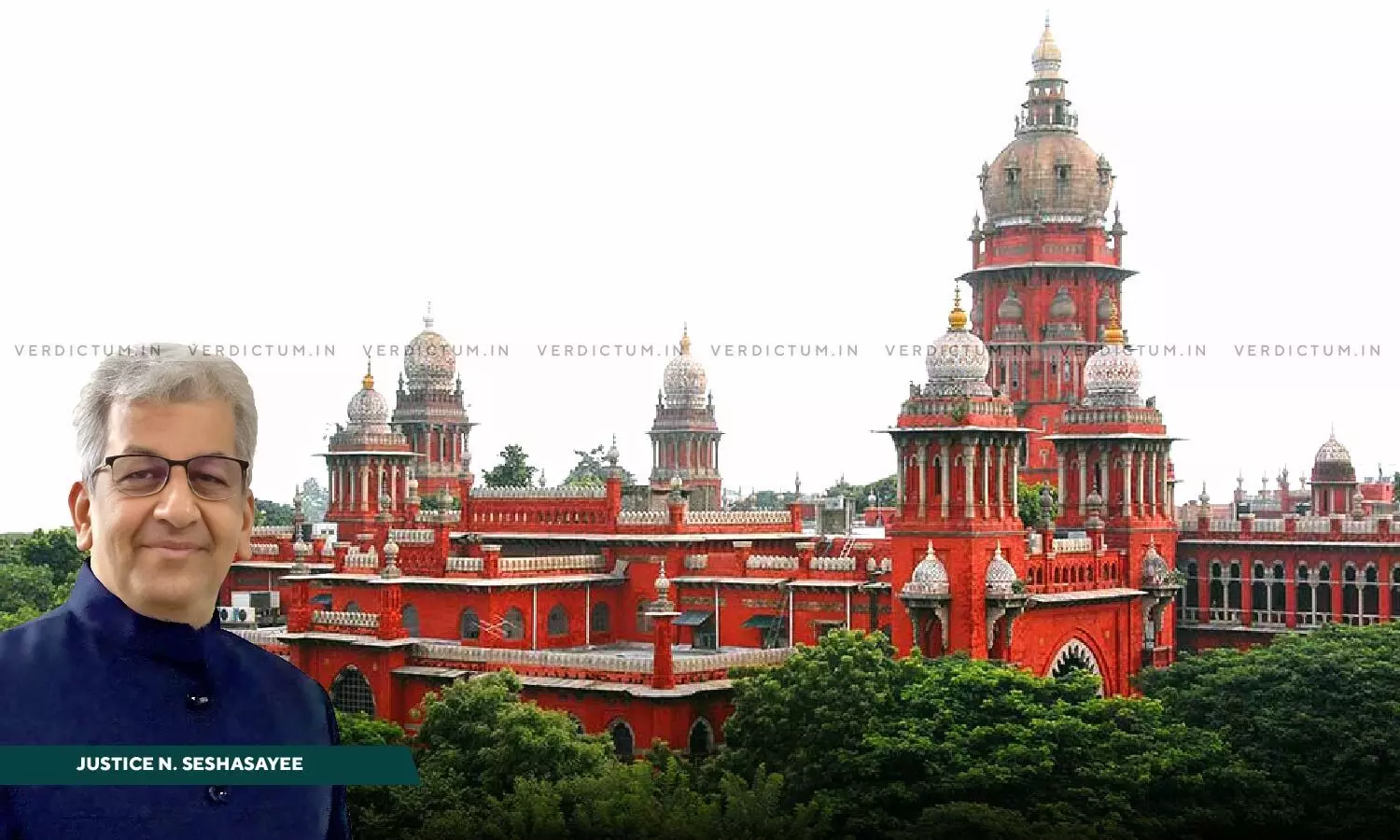
Rise In Status Of Daughters As Coparceners In Effect Has Reduced Quantum Of Property Which Widow & Mother Would Get: Madras HC
 |
|The Madras High Court said that the rise in status of daughters via amendment to Section 6 of the Hindu Succession Act (HSA) in 2005 as coparceners in effect has reduced the quantum of property which the widow and the mother would get.
The Court was deciding a Second Appeal filed against the Judgment and Decree passed by the Additional District Judge, Coimbatore who reversed the Judgment and Decree of the Principal Subordinate Judge.
A Single Bench of Justice N. Seshasayee noted, “… it took another half a century for the Parliament to bring an amendment to Sec.6 vide Central Act 39 of 2005, to elevate the status of daughters as coparceners (after at least three states have brought in their own amendments to this effect – Tamilnadu, Andhra Pradesh and Maharashtra) and this statutory accomplishment enabled it to grant equal share to the daughters in the ancestral property. In the din of this euphoria what however, appears to have been overlooked is that other than the daughters, the widow and the mother of the deceased coparcener also figure as Class I female heirs, and the rise in status of daughters as coparceners in effect has reduced the quantum of property which the widow and the mother would get.”
Advocate Sharath Chandran appeared on behalf of the Appellants while Senior Advocate S. Silambannan appeared on behalf of the Respondents.
Facts of the Case -
As per the pleadings, the first Defendant was the father of Defendants 2 and 3 and also the Plaintiffs. While the Plaintiffs were his daughters, the said Defendants were his sons. The Suit property was allotted to the share of the first Defendant in a partition between him and his brother. Contending that the properties allotted to the first Defendant were ancestral in character, the Plaintiffs claimed that they were also coparceners along with their father and their two brothers in terms of 2005 amendment to HSA, and demanded 1/5th share each in the properties.
The Defendants i.e., brothers instituted a Suit against the Plaintiffs (sisters/daughters) for restraining them with a Decree of prohibitory injunction from interfering with their possession. The Trial Court decreed the Suit of the Plaintiffs and dismissed that of the Defendants. Being aggrieved, Defendants preferred a First Appeal and the First Appellate Court reversed the finding of the Trial Court and dismissed the Suit of the Plaintiffs. Therefore, the Plaintiffs filed an Appeal before the High Court.
The High Court in view of the facts and circumstances of the case, observed, “It may be added here that when the Parliament originally enacted Sec.6, it merely experimented with its idea of empowering a class of female heirs economically, yet it was seen to be hesitant to issue an admit card to the daughters of a male coparcener for an entry into the club of coparceners. And, notional partition, in its wisdom came in handy to relieve it of its predicament, as it could now balance its intent to preserve the legal incidence of ancestral property in the hands of the coparcenery alongside its intent to vest some right at least in the ancestral property in certain class of female heirs of a deceased coparcener.”
The Court remarked that neither before, nor now, the Parliament has attempted to destroy the fundamentals of Hindu law such as the coparcenery, the ancestral property, and their inter-relationship and the legal incidence attached to them, a la the Kerala Joint Family System (Abolition) Act, 1975.
“To sum up the discussions as to whether the suit property which was allotted to the first defendant under Ext.A1 constitutes ancestral property in his hands, this Court unhesitatingly holds that it is an ancestral property in which the plaintiffs as coparcener would be entitled to a share. It may be that about a week prior to the institution of the suit, first defendant might have executed Exts.B1 and B2 settlement deeds, dated 22.08.2008 in favour of his sons, defendants 2 and 3 here, but it is important that even prior to that the plaintiffs have demanded their share in the property vide notice under Ext.A2 and Ext.A4 notices, dated 13.08.2008 and 19.08.2008 respectively”, it further held.
The Court said that when the Plaintiffs have already become entitled to a share in the Suit property as coparceners even from 2005, when amended Section 6 came into effect, anything done by the Defendants to upset the Plaintiffs entitlement is liable to be ignored by the Court.
“And, admittedly, on that date, there was no written partition between the defendants. Substantial question No.2 is accordingly decided in favour of the plaintiffs/appellants. So far as the onus of proof goes, inasmuch as the rule of estoppel binds the first defendant to the recital regarding the character of the property in Ext.A1, the burden indeed is on the first defendant to explain the same as false or a mistake”, it added.
Accordingly, the High Court allowed the Appeal, set aside the Judgment of the Additional District Court, and restored the Decree of the Trial Court.
Cause Title- Vasumathi & Anr. v. R. Vasudevan & Ors.
Appearance:
Appellants: Advocate Sharath Chandran
Respondents: Senior Advocate S. Silambannan and Advocate K. Vasanthanayagan.